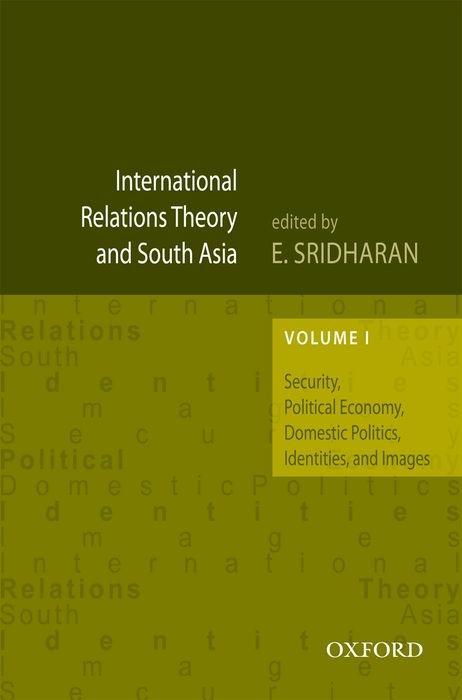
Zustellung: Do, 07.08. - Mi, 13.08.
Versand in 3-4 Wochen
VersandkostenfreiBestellen & in Filiale abholen:
Drawing upon international relations theory, this volume conceptualizes possible solutions to the various conflicts in South Asia. International Relations Theory and South Asian Regional Cooperation analyzes the bilateral conflicts between India and Pakistan and other multilateral problems specific to this region. Bringing together scholarship from several South Asian countries, it offers a well-rounded formulation of conflict resolution and cooperation-building. Employing a strong theoretical rubric, empirical research, and exhaustive fieldwork, the book's centralizing approach to sustain the diversity of perspectives and arguments makes it an indispensable contribution to strategic studies.
Inhaltsverzeichnis
PREFACE AND ACKNOWLEDGEMENTS; INTRODUCTION: INTERNATIONAL RELATIONS THEORY AND SOUTH ASIAN REGIONAL COOPERATION: SECURITY, POLITICAL ECONOMY, DOMESTIC POLITICS, IDENTITIES, AND IMAGES (E. SRIDHARAN);; PART 1 POSSIBLE REGIONAL COOPERATION MODELS, PROCESSES AND OBSTACLES; 1. Sovereignty Tradeoffs and Regional Integration: Theoretical and Comparative Reflections (Pratap Bhanu Mehta);; 2. Regional Dynamics of Emerging Powers: Power/Control or Leadership/Consent (Varun Sahni);; 3. SAARC: The Search for a Regional Security Model (Aparajita Biswas);; PART 2 DOMESTIC POLITICS AND ITS FOREIGN POLICY IMPLICATIONS; 4. The Evolution of Civil-Military Relations in South Asia (Ayesha Siddiqa);; 5. Re-Designing the Architecture of the State? Sri Lanka's Transition from Civil War to Post-Civil War State (Jayadeva Uyangoda);; 6. Foreign Policy Reversal: The Politics of Sri Lanka's Economic Relations with India (Rajesh M. Basrur);; 7. Domestic Bases of Foreign Policy: The Case of Bangladesh's Policy towards India (Nalini Kant Jha);; PART 3 POLITICAL ECONOMY AND REGIONAL COOPERATION; 8. Political Economy of Preferential Trade in South Asia: The Indo-Sri Lanka Free Trade Agreement (Rahul Mukherji);; 9. Obstacles to Bangladesh-India Cooperation: An International Relations Theory Perspective (Mohammad Humayun Kabir)
Produktdetails
Erscheinungsdatum
25. März 2011
Sprache
englisch
Seitenanzahl
396
Herausgegeben von
E. Sridharan
Verlag/Hersteller
Produktart
gebunden
Gewicht
590 g
Größe (L/B/H)
218/145/33 mm
ISBN
9780198069652
Bewertungen
0 Bewertungen
Es wurden noch keine Bewertungen abgegeben. Schreiben Sie die erste Bewertung zu "International Relations Theory and South Asian, Volume 1" und helfen Sie damit anderen bei der Kaufentscheidung.









